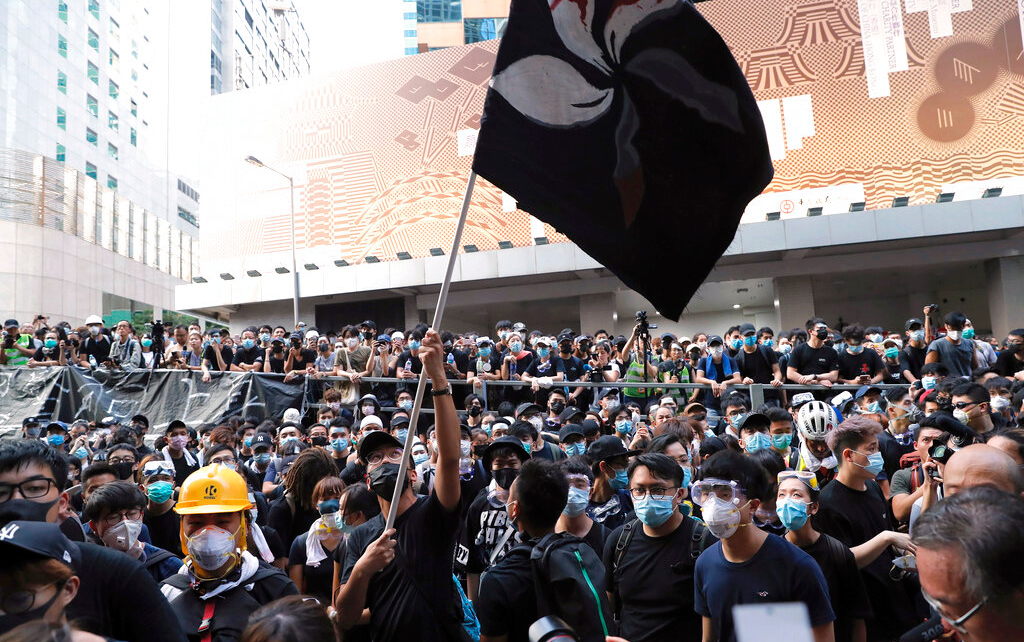Thousands of demonstrators blockaded police headquarters on Friday as Asia’s leading financial centre braced itself for a third weekend of mass protests against an extradition bill that has plunged the Chinese-ruled city into crisis.
Groups of mostly students wearing hard hats, goggles and face masks set up roadblocks and trapped vehicles in a generally peaceful protest to demand that leader Carrie Lam, who promoted and then postponed the bill, scrap it altogether.
“Having people here is giving pressure to the government that we don’t agree with your extradition plans,” said student Edison Ng, who was protesting in sweltering heat of about 32 degrees Celsius.
“It is not clear how long we will stay... To go or not to go, (the) people will decide,” he added.
The protests, which pose the greatest popular challenge to Chinese President Xi Jinping since he took power in 2012, once again forced the temporary closure of Hong Kong government offices over security concerns.
Roads that would normally be jammed with traffic near the heart of the former British colony were empty, with demonstrators reinforcing roadblocks with metal barriers.
“Never surrender,” echoed through the streets as the protesters chanted near police headquarters and called on police chief Stephen Lo to step down.
Riot police armed with helmets and shields appeared from the balcony of police headquarters but withdrew back inside after heavy chanting from the crowd. Police warned activists through loud hailers not to charge.
Thousands remained outside government buildings on Friday night, with the majority sitting peacefully and spraying each other with water to keep cool. Nearby, a large group sang Sing Hallelujah to the Lord, which has emerged as the unlikely anthem of the protests.
Hong Kong returned to Chinese rule in 1997, since when it has been governed under a “one country, two systems” formula that allows freedoms not enjoyed in mainland China, including a much-cherished independent judiciary.
Millions of people, fearing a further erosion of those freedoms, have clogged the streets of the Asian financial centre this month to rally against the bill, which would allow people to be extradited to the mainland to face trial in courts controlled by the party. It triggered the most violent protests in decades when police fired rubber bullets and tear gas to disperse the crowds.










